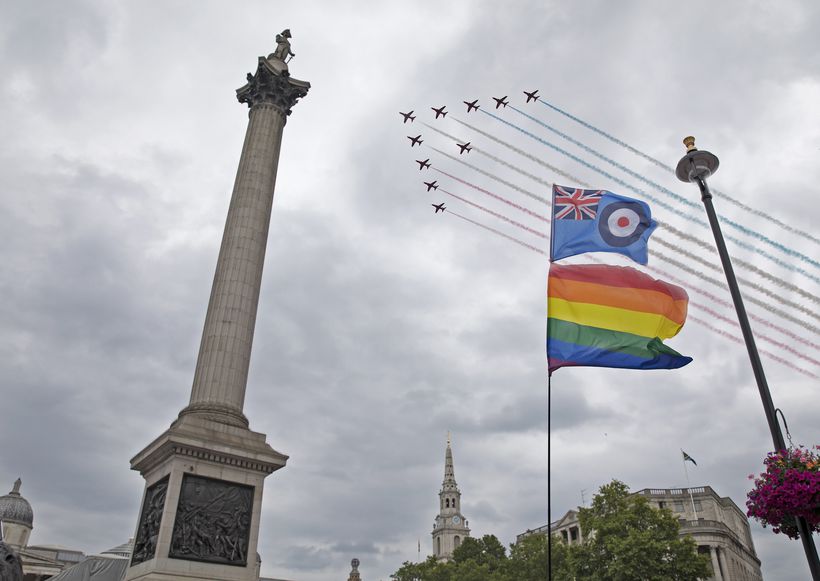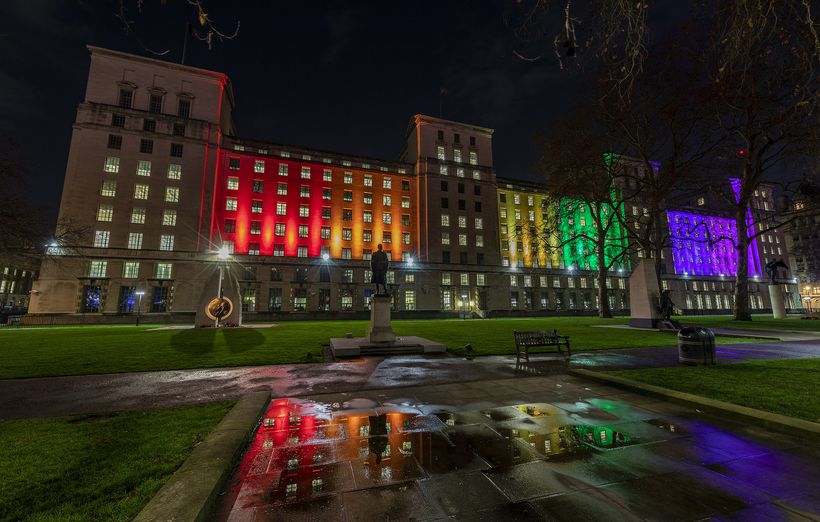Updated on
A History of Injustice: LGBT+ Veterans and the Armed Forces Ban
Until the year 2000, it was illegal to be openly gay in the British Armed Forces.
You could fight for your country. You could lay down your life. But you couldn’t love someone of the same sex.
The ban on LGBT+ people serving in the military didn’t just deny people the right to serve with dignity—it ruined lives. Veterans were criminalised, dismissed without honours, stripped of medals, lost their pensions, and their reputations. Some were imprisoned. Many more suffered in silence.
This shameful chapter in British military history lasted far too long. But thanks to the bravery of those who stood up and spoke out—often at great personal cost—the tide began to turn.
From Discrimination to Legal Battle
The ban was rooted in outdated criminal laws, dating back to the 1885 Labouchère Amendment, which made male homosexual acts a criminal offence. Despite changing attitudes and partial decriminalisation in 1967, the military exemption remained.
Even after 1994, when it ceased to be a criminal offence, it was still classed as “conduct prejudicial to good order and discipline” under military law. This meant that service personnel could still be dismissed for being gay.
The decisive moment came in 1999, when four former service members—Jeanette Smith, Duncan Lustig-Prean, Graham Grady, and John Beckett—took their case to the European Court of Human Rights. The court ruled unequivocally: the ban violated their right to a private life.
On 12 January 2000, the Ministry of Defence lifted the ban. But it came decades too late for thousands of LGBT+ veterans.
Progress Since the Ban
In the years since, the Armed Forces have taken steps to become more inclusive:
- LGBT+ service personnel now serve openly across all ranks.
- Pride participation has become the norm, with military representation at marches since 2008.
- Same-sex couples receive the same housing and benefits entitlements as heterosexual colleagues.
- The Armed Forces Covenant explicitly recognises LGBT+ veterans.
Colonel Mark Abrahams, the former head of Army human resources, once noted that lifting the ban improved morale and productivity—proof that inclusion strengthens our forces.
Lord Etherton’s Independent Review
Despite progress, many veterans still carry the scars of past injustice.
In 2022, Lord Etherton was appointed to lead an Independent Review into the impact of the pre-2000 ban on LGBT+ veterans. After extensive evidence-gathering—including over 1,100 harrowing testimonies—The Etherton Review was published in July 2023.
It detailed decades of systemic mistreatment: dishonourable discharges, invasive investigations, loss of careers, homes, and dignity. The report made 49 recommendations, ranging from formal apologies to financial compensation.
Implementation of the 49 Recommendations
As of March 2025, the UK Government has accepted the intent behind all 49 recommendations and has implemented 42 of them. The remaining seven are in progress, with two under the Ministry of Defence and five under the Department of Health and Social Care. Notably:
- Recommendation 44: Focuses on female veterans affected by the ban and will be implemented as part of a new inclusive veterans’ strategy.
- Recommendation 17: Calls for a dedicated memorial to LGBT personnel at the National Memorial Arboretum, expected to be unveiled before the end of 2025.
Restoration of Dignity: Financial Recognition Scheme
In December 2024, the Government launched the LGBT Financial Recognition Scheme, allocating £75 million—50% more than initially recommended. The scheme offers:
- A flat payment of £50,000 for veterans who were dismissed or administratively discharged due to their sexual orientation or gender identity.
- Additional payments of up to £20,000 for those who suffered further harm, such as harassment or imprisonment.
These payments are exempt from income tax and means-tested benefits. The scheme will remain open for two years, with priority given to terminally ill veterans.
Non-Financial Restorative Measures
Beyond financial compensation, the Government has introduced several restorative measures:
- Veterans can apply to have their discharge status amended to reflect the unjust nature of their dismissal.
- Restoration of ranks for those demoted due to the ban.
- Reissuance of service medals and certificates.
- Extension of certain measures to those who served before 1967, acknowledging their experiences.
A Memorial for LGBT+ Service Personnel
In April 2024, it was announced that the UK's first memorial dedicated to LGBT armed forces personnel will be built at the National Memorial Arboretum. Spearheaded by the charity Fighting With Pride, the memorial aims to honour LGBT veterans, especially those impacted by the pre-2000 ban.
Continuing the Campaign
While significant strides have been made, work remains to ensure all affected veterans receive the recognition and support they deserve. We are proud to collaborate with Fighting With Pride and other organisations to advocate for LGBT+ veterans.
If you or someone you know was affected by the ban, please visit the LGBT Veterans: support and next steps page to learn more about available support and how to apply for restorative measures.




